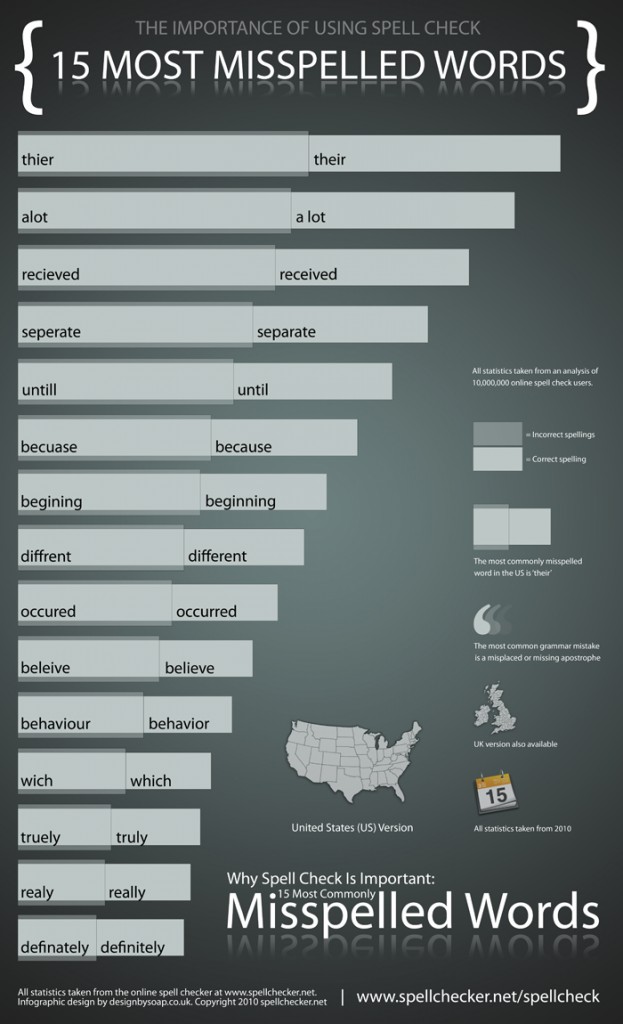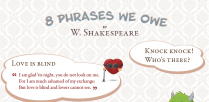English is influenced by every major language on Earth, including some that aren’t even used anymore, so spelling is bound to cause frustration. Our headstrong language does have rules, but not all words abide by them. The old “I before E, except after C”, for instance, was discarded when the exceptions were found to outnumber the words that followed it. Einstein might have chuckled, having broken it twice with just his name.
Nothing makes a writer look more like a yokel than a page full of misspelled words, and if that page happens to be a resume, the results will be disastrous. Once upon a time, spelling boiled down to memorization, but in this age of computers, as the infographic suggests, spell check is an easy fix.
 You can easily download full-size poster version of the infographic here.
You can easily download full-size poster version of the infographic here.
Most who have spell check consider it a necessity, as even the most grizzled veteran writers encounter potholes. A university professor once remarked, “I was writing along, quick as you please, and I hit a wall in the form of the word ‘rabbit’. My mind went blank…was it one ‘B’ and two ‘Ts’? Two ‘Bs’ and one ‘T’? It was odd–I can write ‘cognitive neuropsychiatry’, but I get stuck on ‘rabbit’? Thank goodness for spell check.”
The most misspelled words in the English language are not pulled from college term papers, they are in everyday writing. While reading through this list of the 15 most commonly misspelled words (when your nose begins to bleed and your eye starts to twitch), remember that there is an easy solution: spell check.
1: Their–confusion may come from “thief”.
2: A lot–“alot” isn’t a word.
3: Received–there’s that “I” and “E” again.
4: Separate–confusion is probably caused by the pronunciation.
5: Until–one “L”: “Till the earth until it’s ready.”
6: Because–“A” and “U” are commonly swapped.
7: Beginning–two “Ns”.
8: Different–spoken, the first “E” isn’t enunciated, so it’s often left out.
9: Occurred–two “Cs”, two “Rs”.
10: Believe–it actually follows the old rule.
11: Behavior–no “U” for American spelling.
12: Which–don’t forget that first “H”.
13: Truly–“true” loses its “E” when adding “ly”, but–
14: Really–“real” gains an “L”.
15: Definitely–an “A” often sneaks in.
As this infographic proves, the most commonly misspelled words are the ones we use every single day. By taking a minute and spell checking your work, you can avoid these blunders and, in doing so, appear more professional in a business email, come off as more caring and considerate in a birthday card (because you took the time to perfect and polish your writing), and simply be viewed by the world at large as a more educated, conscientious individual. Spelling matters in real life, not just in English class!
Have any misspellings captured your keyboard this year, or have you been able to conquer them with clever mnemonic strategies?
You are very welcome to share them in the comments.
Interested in more information on Spell Check? Find us on Facebook and follow our Twitter for more activities in SpellCheck Week.








